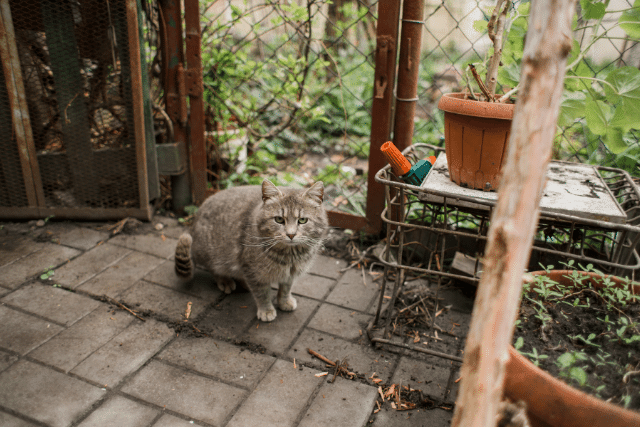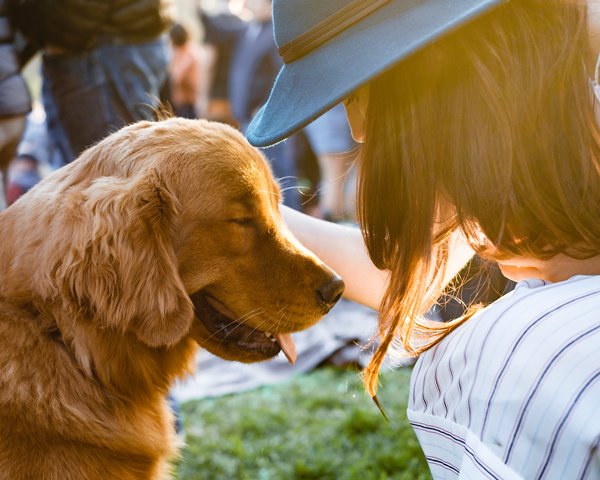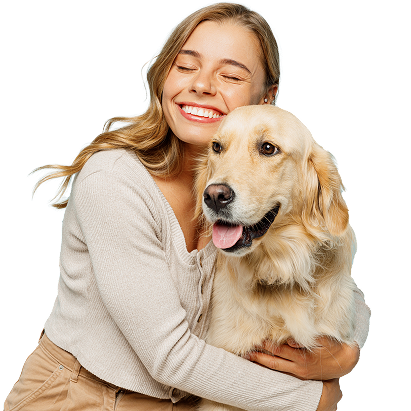Top tips for a healthy and happy pet this summer
While we might get excited about the hot weather in summer, it is important to remember that the change in weather at this time of year can sometimes be tough for our pets. Extra considerations need to be made when we travel, during walks, in the house or garden and even when considering preventative […]
While we might get excited about the hot weather in summer, it is important to remember that the change in weather at this time of year can sometimes be tough for our pets.
Extra considerations need to be made when we travel, during walks, in the house or garden and even when considering preventative treatment they may need. To help this summer we have created a healthy summer guide.
Keep them well-hydrated
It is essential that our pets have free access to plenty of water at all times, but this becomes even more important when it is hot. Dogs can lose large amounts of water by panting and will need to replenish this by drinking. Drinking cold water can also help keep dogs and cats cool in hot weather.
- Place water bowls in several places around your home and garden
- Cats often like to drink from moving water, so consider a feline water fountain
- Take a portable bowl and water on your dog walks, and make sure to stop frequently to offer your furry friend a drink
- Walk by rivers or fresh water sources to enable your dog to stop for a drink (and perhaps a cool-down swim!)
Stay Cool
Most of our feline and canine companions come with an inbuilt fur coat and limited cooling abilities. Whereas we can remove our clothing or sweat if we get hot, animals are stuck with their fur and can lose heat only by panting or sweating from their paws.
- Provide shaded areas in the garden and when out and about with your pet and encourage them to stay in the shade where possible.
- Select cooler times of day to walk your dog: early in the morning or late in the evening. If you think it is cool enough to head out, stick to shaded areas, woodland cover and walks by waterways.
- Provide cooling devices at home: fans and air conditioning can be used to help cool pets too. (Fans should be used only if out of reach of pets and under supervision). Or provide damp towels on the floor for them to lie on.
- Try not to over-excite your dog or cat in hot weather. Save that game of fetch for a cooler day. Consider games which require less activity, or games which involve water such as playing in paddling pools, with sprinklers or with the hose
- Many pets like playing with and eating ice cubes. Plain water is often enticing enough, but you could consider tuna water for cats or more fussy dogs. Some dogs will even enjoy munching on a frozen carrot to help cool them down.

Be considerate of our inquisitive feline friends
Cats may venture into sheds, outbuildings and conservatories that are left open in warmer weather – make sure to check these fully before closing and locking up for the night.
Parasite Prevention
Warmer weather brings with it an increase in fleas and ticks in the environment. Speak to your vet to ensure your pet has adequate cover from these parasites. It is also worthwhile having a ‘tick hook’ to hand at home; to remove any ticks that your pet may have effectively without leaving the head behind.
Sun Protection
Not only can too much sunshine contribute to our pet’s overheating, but like us, pets can get sunburnt too. White and thin-coated animals are particularly susceptible to sunburn; you can often buy pet-specific sun cream from pet stores, or a baby-formulated sun cream should be safe. (Make sure they don’t lick it straight off!) Place a little sun cream on exposed areas to help protect them, (for example on the bridge of a white dog’s nose, or the tips of a white cat’s ears). Hairless animals will definitely benefit from sun cream!
Beware of summer scavengers
Summertime brings out picnics and barbeques & beaches, and with this plenty of tempting opportunities for our pets to grab themselves what they may think is a tasty treat, but may actually be dangerous to them. View our Beach Behaviour guide and Foods to Avoid this Summer for more info!

Avoid heatstroke
Heatstroke is when a pet overheats and cannot cool themselves down; if not dealt with promptly this can be fatal. As pet owners, we want to avoid this happening at all costs. However, it is important to be aware of the signs indicating our pets may be overheating, so we can act quickly to deal with them.
Signs your pet may be overheating:
- Excessive panting
- Increased heart rate
- Dry gums
- Sunken/ glazed eyes
- Drooling
- Vomiting and diarrhoea
- Your pet becoming wobbly
- Lethargy, progressing to loss of consciousness
Cars – NEVER LEAVE A DOG IN A HOT CAR!
Not even to pop into the shop for 5 minutes – NEVER! The temperature inside a car, even with the windows left open can rise exceptionally quickly, and with dogs’ limited cooling mechanisms, they can start to overheat and develop heatstroke in no time. Make plans so that you will not need to leave your dog in the car at any point on a hot day unless they are accompanied and the air conditioning can remain on at all times.
For more information learn more in our article on how to keep your dog cool and comfortable this summer.
Emergency action to take if you suspect an animal is overheating
Should you notice ANY of the above signs then you must act fast to help your pet. Move them into a cool shaded area and try to make sure they stay still (often our furry friends don’t realise they are in danger of overheating). If they are young, fit and still conscious you can immerse them in cold water, ensuring you keep their head out so they don’t inhale any. If they are older or have medical conditions you can spray or pour cold water on them as this can help evaporative cooling. The myth of only using tepid water is incorrect – cold water is best but if you do not have access to that, then using water that is at least cooler than your dog will still help. You can offer them water to drink if they are conscious but little and often so they don’t take big gulps and inhale it. Studies show that if owners start this cooling process before going to the vets (as car travel even with the air-conditioning on or car windows down can still increase their temperature) their pets have a higher survival rate. Call your vet for advice once you have started the cooling process and then follow their recommendations. You are likely to need to take your pet to the vet immediately and they will be able to continue the cooling process and give any emergency treatment necessary.
A good way to remember what to do is WET then VET
Top Fact
Many people jump to the conclusion that clipping their dog’s fur makes them cooler. This is often not true. Not only does their coat protect them from direct sunlight and sunburn, but thermal mapping has shown that dogs which have been clipped short will often have a higher skin temperature than dogs with their normal summer coat. The outer layer of double-coated dogs can act as insulation against the heat.
 Pet Owner
Pet Owner 



